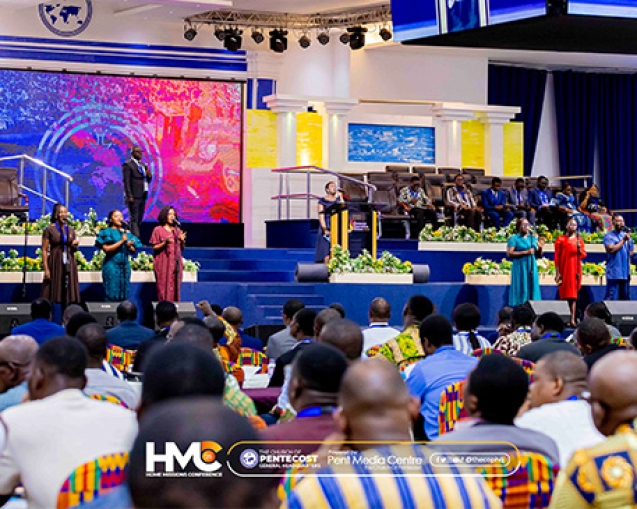INTRODUCTION
As part of the Church’s mission in 2024 to unleash the whole church to transform the world, a key focus is on closing the backdoor within our Local Churches. This article explores the concept of closing the back door of the Local Churches, suggesting how to bolster trust in the church to enhance the retention of church members, thereby dealing with those who leave through the back door.
CLOSING THE BACK DOOR
Closing The Back Door of the Local Church has been explained by Apostle William Ohemeng-Kwakye as adopting pragmatic, spirit-led approaches to prevent the gradual process where persons withdraw from the church without notice or anyone’s concern. The term refers to the crucial task of ensuring that members don’t quietly exit our assemblies without being noticed.
BACKSLIDERS IN THE LOCAL CHURCHES
It is my firm belief that there are two distinct categories of backsliders in the church: those captured on our reports as backsliders because they have physically left or stopped coming to church, and those who, while attending church services, are suddenly unengaged and passive. Such people are backsliders at heart.
FACTORS THAT OPEN THE BACKDOOR AND WAY FORWARD
There is a plethora of reasons why individuals leave our churches, ranging from personal challenges to structural and doctrinal issues. Factors such as lack of connection, lifestyle changes such as moving to a new location, schooling, and work contribute to the opening of the Church’s back door. Also, having negative experiences in church, and the current diverse religious and cultural pluralism have been outlined as some of the reasons why people leave our churches. While various strategies have been proposed to address this challenge, such as implementing seeker-sensitive services, conducting pastoral visits, having regular roll call, and enhancing welfare practices, I propose a fundamental approach: taking intentional steps to building trust within our Local Churches.
THE LOCAL CHURCH IN A SUSPICIOUS WORLD
Our contemporary world is filled with suspicions in almost everything. Our phones have passwords, our houses have security doors and windows, and our workplaces have CCTV cameras. All these are proof of how generally suspicious our world has become. A study conducted by Ipsus UK in 2023 on the global trust index in institutions and professions reveals a general lack of confidence in systems and institutions. According to the report, people have the highest confidence in doctors, scientists, and teachers. Even that, just under 60% expression of trust. Conversely, trust in clergy, journalists, government, and politicians according to the report was below 30%. These findings go a long way to prove that the church is situated in a world with relatively low levels of trust. Many people are suspicious. Therefore, to close the backdoor of our Local Churches, deliberate actions must be taken to bolster the trust of its members.
TRUST DEFINED
Webster defines trust as confidence; a reliance or resting of the mind on the integrity, veracity, justice, friendship or other sound principle of another person.
A TRUSTWORTHY LOCAL CHURCH
From the above, we can define a trustworthy Local Church as a Christian gathering of believers where members have restful confidence in the integrity and veracity of its people (both leaders and members), structures, processes, and practices.
THE POWER AND SIGNIFICANCE OF TRUST
Trust transcends secular contexts such as business, governance, and relationships. It is the most essential form of capital any organization or leader has. Its significance is even more pronounced within the church, which is entrusted with matters of eternal significance. In their article, posted on Harvard Business Review titled, “Begin with Trust,” Frances X. Frei and Anne Morriss wrote, “Trust is the reason we’re willing to exchange our hard-earned paychecks for goods and services, pledge our lives to another person in marriage, cast a ballot for someone who will represent our interests.”
CHARACTERISTICS OF TRUSTWORTHY LOCAL CHURCHES
A. AUTHENTICITY: In a Local Church that is built on trust, there is authenticity. Members feel safe to genuinely be themselves without being judged by others. They are willing to be vulnerable to other members within the congregation, especially leadership, with their heartfelt struggles and desires being fully persuaded that they would be accepted and supported instead of being condemned or betrayed. To put it in more biblical language, in this Local Church, “members do not think of themselves more highly than they ought to think, but think soberly, as God has dealt to each one a measure of faith” (Romans 12:3 NKJV). Also, love demonstrated in this church is “without hypocrisy”. Members in this church “abhor what is evil but cling to what is good, being kindly affectionate towards one another with brotherly love, and in honor giving preference to one another” (Romans 12:9-10 NKJV).
B. RESPECT FOR PEOPLE: in trustworthy Local Churches, members feel valued. Leadership decisions, programs, and actions are geared towards serving the best interests of its members also. Members feel listened to, cared for, and involved in the ministry of the church, using their different gifts “according to the grace that is given to them” to serve the body (Romans 12:6). In this church, members are not ministered to, visited, or contacted merely with selfish motives: what one may gain, or for the sake of records or out of duty, but out of willingness, eagerness, and genuine concern for them (1 Peter 5:2-3).
C. PROOF OF COMPETENCE: a trustworthy Local Church proves to be competent in fulfilling its purpose. Such Local Churches understand that they have become havens for people who are nurturing various ambitions and callings. Also, these churches believe that God has a divine plan and purpose for everyone in their congregation (Jer. 29:10; Eph 2:10). Therefore, they position themselves as equipping centers where members are trained and unleashed into the world to fulfill their divine assignments to the glory of God (Eph. 4:11-16). Again, these Local Churches understand that, unlike other organizations, they bear the responsibility of nurturing the eternal souls of their members, and any misstep in fulfilling this duty could result in eternal consequences. Therefore, in Local Churches where trust is cherished, members find safety in knowing that they are under the guidance of competent leaders who are grounded in faith and are committed to teaching the unadulterated word of God, demonstrating both personal and doctrinal integrity for the well-being of the church.
RECOMMENDATIONS FOR BUILDING TRUSTWORTHY LOCAL CHURCHES
To build trustworthy Local Churches, the following recommendations may be considered:
a. Putting competent leadership in place in each local assembly. In assigning leaders to Local Churches, leadership must ensure due diligence, ensuring that individuals selected possess the Biblical requirements for church leadership: Spirit-filled, of proven and trustworthy character, knowledgeable, humble, hospitable, etc.
b. Careful attention must be given to processes for assimilating new members into the assemblies. New members and converts class must feature lessons beyond theological education to understanding in practical terms the structures and practices of the church.
c. Upholding confidentiality in counseling. Where available, professional counselors who are members of the Local must be made to lead the counseling ministry of the Local Churches.
d. Demonstrating integrity in the handling of the word of God. The Preacher’s plan must be shared in advance to enable those on program to prepare adequately before stepping into the pulpit to share the word of God. Also, preachers must be willing to wait on God to hear from Him and to declare the whole counsel of God to their members.
e. Demonstrating genuineness and firmness in administering welfare practices in the Local Church. Approved guidelines provided by the church must be rigorously followed without fear or favor.
f. Demonstrating strict financial discipline in the Local Church. Uphold transparency and accountability in all financial transactions in the church.
g. Organizing impactful and Spirit-filled programs where members have real encounters with God. Enough time must be spent in planning programs to meet the needs of members for the glory of God.
h. Uphold high standards in church discipline, demonstrating courage, promptness, integrity, and compassion when administering discipline in the church.
i. Practicing appreciation: members who have served well in the Local Church must be openly and sincerely commended to encourage others to follow their example.
CONCLUSION: A CALL TO A COLLECTIVE RESPONSIBILITY
It is my firm belief that when Local Churches adopt these recommendations, they will become a trustworthy entity where its members grow and thrive. However, while building trustworthy Local Churches is an obvious leadership responsibility, it is noteworthy that it is also a collective responsibility. By collectively prioritizing authenticity, love, value, and competence in the Local Church, leaders and members together can cultivate an environment where individuals feel secure, supported, and spiritually nourished, thereby helping to close the backdoor of the Local church.
Report by Isaac Kwabena Tagoe (District Minister, COP, Nanton, Tamale)
BIBLIOGRAPHY
Kwakye, Ohemeng. “Closing the Back Door of the Church.” The Church of Pentecost Headquarters, https://thecophq.org/close-the-back-door-of-the-church-apostle-ohemeng-kwakye-tells-ministers/
The constitution of the Church of Pentecost
Ipsus Global Trustworthiness Index 2023
Begin with Trust.” Harvard Business Review, 2020, https://hbr.org/2020/05/begin-with-trust
Trust.” Webster’s Dictionary.
6 Top Reasons Why People Leave the Church” [2024]. Clickmill, https://clickmill.co/why-people-leave-the-church/
“Seven Laws of Membership Retention.” StudyLib, https://studylib.net/doc/7842339/the-seven-laws-of-member-retention


















